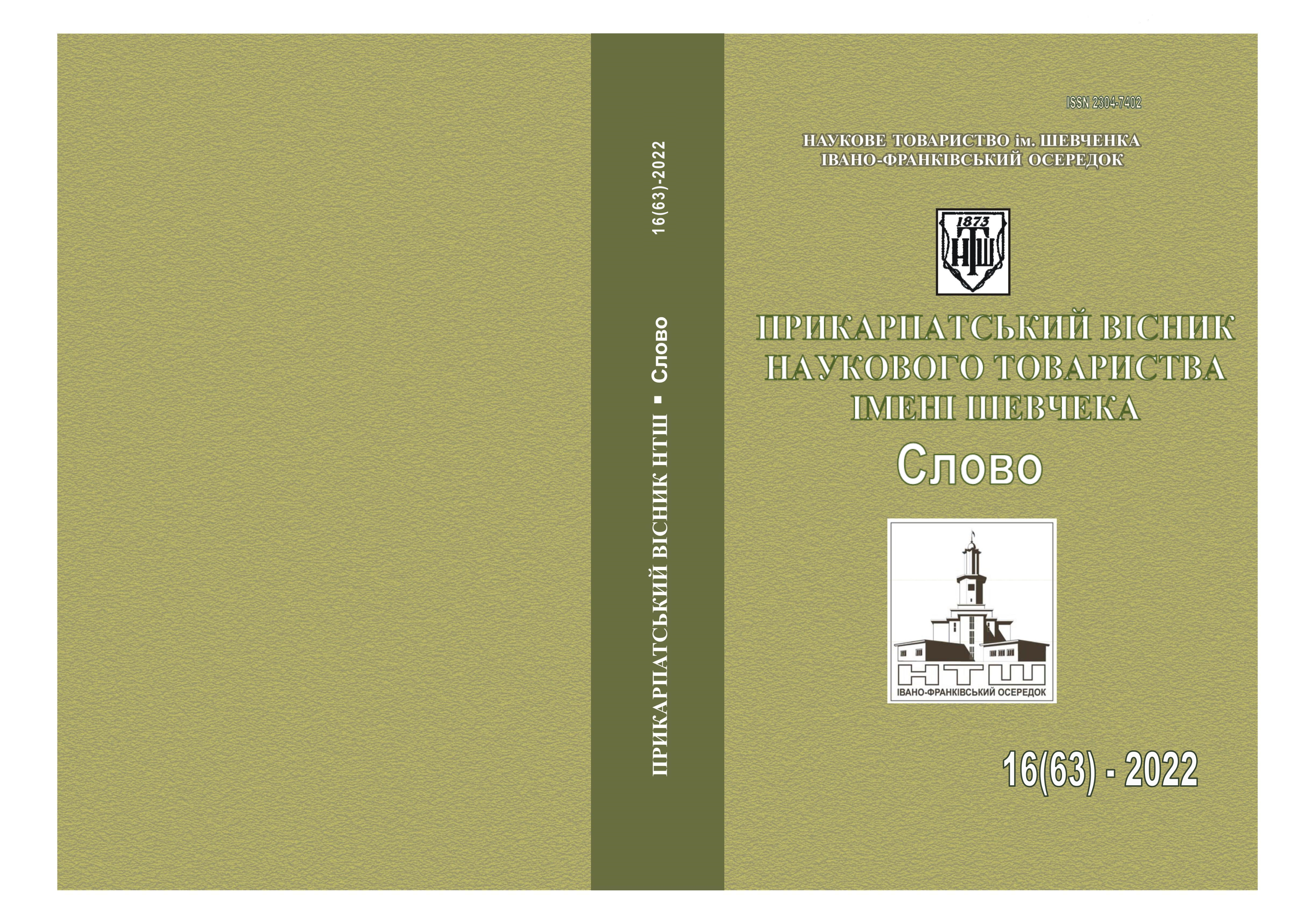LEXICAL MEANS OF EXPRESSION OF TEMPORALITY IN THE VERSION OF THE MODERN UKRAINIAN LANGUAGE AT THE END OF THE XIX CENTURY (BASED ON LETTERS FROM VASYL STEFANYK)
DOI:
https://doi.org/10.31471/2304-7402-2022-16(63)-391-399Keywords:
lexical temporality, temporal semantics, means of expression, text of the letters, language of Galicia in the end of XIX century.Abstract
Aim. The article is devoted to the analysis of the means that represented lexical temporality in the modern Ukrainian language (in its western version) in the last decades of the XIX century. The purpose of the article is to determine the peculiarities of the functioning of the means of expression of lexical temporality, to classify words with temporal semantics on the material of the epistolary of Vasyl Stefanyk for 1888 – 1898. Methods. The paper uses a systematic approach using the lexical-semantic method of research of language units, the method of continuous sampling. Results. The article presents the lexical-semantic classification of words for the designation of time by two lexical-grammatical parts – nouns and adverbs, and features of functioning of temporal lexemes in the texts of Vasily Stefanyk's letters are revealed. The analysis has shown that all lexical means of temporality expressing can be classified within three microclusters: lexical means with a clear indication on the time of year or day, a specific date, hour and religious holiday; lexical specifiers with chronological semantics without a clear indication of the exact time; a combination of the words of the language different independent parts employed by the author of the letters to point the approximate time or more detailed description of the event time. Scientific novelty. The article for the first time analyzes the specifics of Vasyl Stefanyk's use of words with temporal semantics in letters, lexical-semantic classification of such words through the prism of the Western version of the modern Ukrainian language in the last decades of the XIX century. Practical meaning. The material of the article can be used in further study of the category of lexical temporality in the modern Ukrainian language, as well as in the study of the Galician language at the turn of the XIX - XX centuries.
References
Барчук В. М. Граматична темпоральність: Інтервал. Час. Таксис: монографія. Івано-Франківськ: Сімик, 2011. 416 с.
Куценко В. В. Час як філософська категорія: у пошуках екзистенційної темпоральності. Вісник Київського національного університету імені Тараса Шевченка. Філософія. Політологія. Вип. 110. 2012. С. 9 – 12.
Лесюк М. Становлення і розвиток української літературної мови в Галичині : монографія. Івано-Франківськ : Місто НВ, 2014. 732 с.
Лихошерстова М. Ю. Темпоральні іменники і прислівники як основні лексичні засоби вираження часу (на матеріалі сучасних арабської й української мов). Вісник КНЛУ. Серія «Філологія». 2015. Т. 18. № 2. С. 109 – 114.
Піхманець Р. Листи Василя Стефаника як джерело вивчення його життя і творчості. Парадигма. 2004. Вип.2. С.191 – 228.
Романюк С. Структура категорії темпоральності в сучасній українській мові. Варшава : Sowa Sp. Z o.o., 2012. 235 c.
Русанівський В. М. Структура українського дієслова. К.: Наукова думка, 1971. 315 с.
Стефаник В. Повне зібрання творів. У 3 т. Т.3: Листи. К., 1954. 327 с.
Arstila V., Lloyd D. (eds.) Subjective Time: The Philosophy, Psychology, and Neuroscience of Temporality. Cambridge, MA: The MIT Press, 2014. 688 p.

